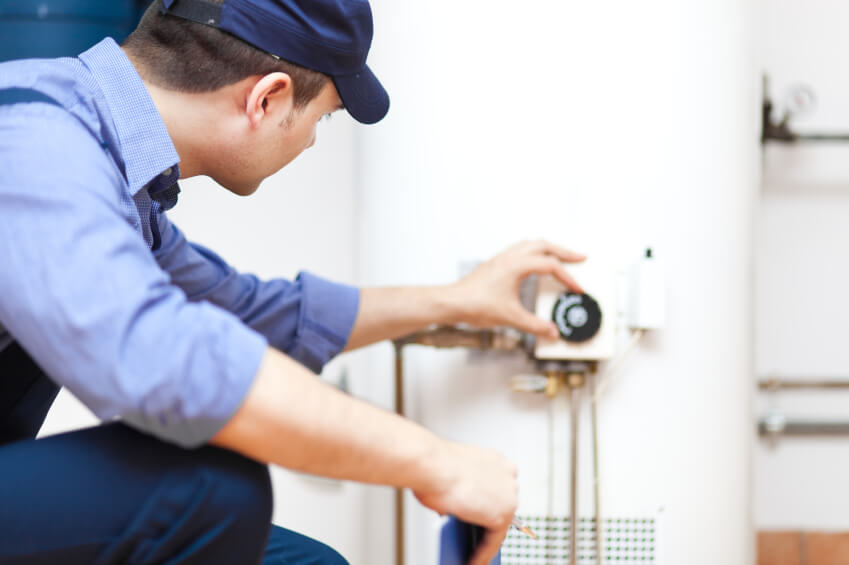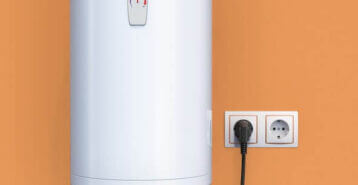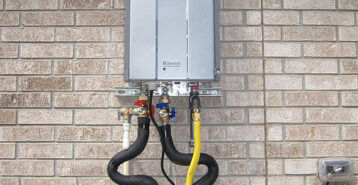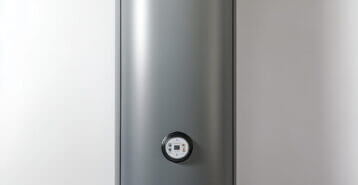Understanding Water Heater Lifespan
Water heaters are a core part of your home’s plumbing system, providing hot water for daily use. When you understand the typical lifespan and how to maintain your system, you can plan ahead, avoid surprise failures, and budget for replacement at the right time.
A water heater’s lifespan depends on system type, maintenance habits, water quality, and household demand.
- Traditional water heaters: Typically last 8 to 12 years. They store hot water in a tank, which can degrade over time due to sediment buildup and corrosion.
- Tankless water heaters: Heat water on demand and do not store it in a tank. With proper maintenance, tankless models often last 10 to 15 years or longer.
These ranges can help you budget for maintenance and replace your system before it fails unexpectedly.

Factors That Affect Lifespan
Several factors influence a water heater’s lifespan:
- Type of water heater: Tank models wear down as they store and reheat water, which can lead to corrosion and sediment buildup. Tankless models avoid storage-related corrosion but can develop mineral scale in the heat exchanger.
- Maintenance frequency: Routine maintenance can extend lifespan. Flushing the tank, checking key components, and replacing the anode rod can prevent early failure.
- Water quality: Hard water increases mineral buildup, which reduces efficiency and can shorten lifespan. A water softener can help reduce sediment and scaling.
- Usage patterns: Higher hot water demand creates more wear on heating components and can shorten service life.
- Installation quality: Improper installation can cause leaks, venting problems, or reduced efficiency. A licensed installer helps ensure safe operation and optimal performance.
How to Extend the Life of Your System
Annual flushing, anode rod replacement, and routine inspections are some of the most effective ways to extend water heater lifespan.
These steps can extend the life of your water heater and reduce repair and replacement costs:
- Flush the tank regularly: For traditional tank water heaters, flush annually to remove sediment buildup that reduces efficiency and accelerates wear.
- Replace the anode rod: The anode rod protects the tank from rust. Check it during maintenance and replace it every 3 to 5 years, or sooner if heavily corroded.
- Schedule annual inspections: A professional can catch leaks, worn components, or safety issues early.
- Insulate the tank and pipes: Insulation reduces heat loss, improves efficiency, and can reduce strain on the system.
- Install a water softener: In hard water areas, a water softener can reduce mineral deposits and scaling.
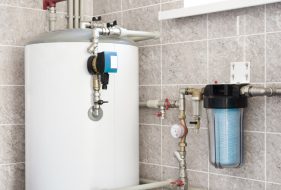
Signs Your Water Heater Needs Replacement
Temperature swings, strange noises, leaks, rusty water, or an older unit (10 to 15+ years) often indicate it’s time to replace.
- Fluctuating water temperatures: This may signal a failing heating element, a thermostat issue, or sediment buildup.
- Strange noises: Popping or banging often comes from sediment buildup and can cause long-term damage.
- Visible leaks: Water around the base may point to valve problems — or a deteriorating tank that requires replacement.
- Discolored or foul-smelling water: Rusty or cloudy water can signal corrosion. Odors may indicate bacterial growth, especially with infrequent use.
- Age of the unit: If your heater is nearing or past 10 to 15 years, replacement may make more sense than waiting for a failure.
Benefits of Replacing an Old Water Heater
- Improved energy efficiency: Newer and ENERGY STAR-certified models use less energy, which can lower utility bills.
- Better hot water performance: You can get more consistent temperatures and faster recovery times.
- Lower repair costs: Replacing an aging unit can reduce recurring repair expenses and lower the risk of emergency breakdowns.
- Enhanced safety: Modern heaters include updated safety features for temperature and pressure control.
Replacement Costs
The cost of replacing a water heater varies by type and installation requirements:
- Traditional tank water heaters: $1,600 to $2,400 installed.
- Tankless water heaters: $2,400 to $5,400 installed.
Tankless models typically cost more upfront, but they can deliver long-term savings through improved efficiency and longer service life.

When to Replace vs. Repair
In general, if your water heater is under 10 years old and the issue is minor (thermostat, element, valve), repair may be enough. If the unit is near the end of its life, leaking from the tank, or needs repeated repairs, replacement is usually more cost-effective.
Explore Modernize’s Water Filtration Cost Guide to learn more about related home system costs and find local professionals. Modernize connects homeowners with trusted professionals for water heater installation, maintenance, and repairs so you can upgrade before an emergency hits.
Compare top-rated plumbing pros in your area.
Read real homeowner reviews, explore qualifications, and view promotions. Modernize makes it easy to browse professionals and find one that will be perfect for your project.
